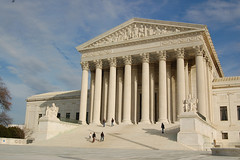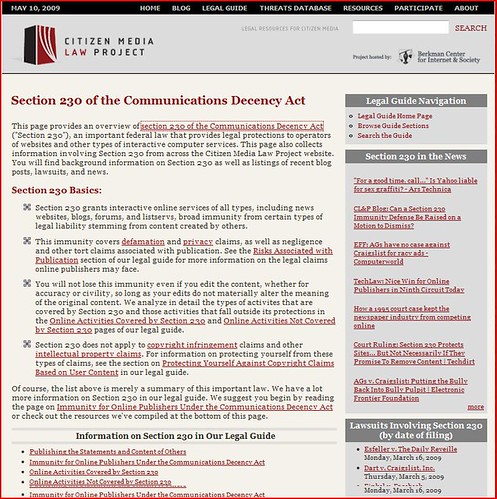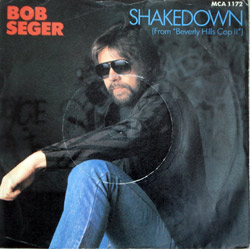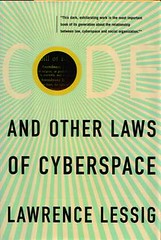 California has asked the Supreme Court to review a Ninth Circuit Court of Appeals decision holding that a California video game statute was unconstitutional. [Game Politics.com has complete coverage, and there’s more over at Ars and USA Today’s Game Hunters blog.]
California has asked the Supreme Court to review a Ninth Circuit Court of Appeals decision holding that a California video game statute was unconstitutional. [Game Politics.com has complete coverage, and there’s more over at Ars and USA Today’s Game Hunters blog.]
Brief background: In late February, the Ninth Circuit upheld an August 2007 ruling by a California district court decision in the case of Video Software Dealers Association v. Schwarzenegger [decision here], which struck down a California law, passed in October 2005 (A.B.1179), which would have blocked the sale of “violent” video games to those under 18 and required labels on all games. Offending retailers could have been fined for failure to comply with the law. After being challenged by the Video Software Dealers Association and the Entertainment Software Association and, the district court blocked the law arguing that it violated both the First and Fourteenth Amendments to the federal Constitution.
California’s decision to appeal the law up to the Supreme Court [petition is here] sets up a potential historic First Amendment decision (if they Court agrees to take the case, that is). California is asking the Court to consider two questions:
1. Does the First Amendment bar a state from restricting the sale of violent video games to minors?
2. If the First Amendment applies to violent video games that are sold to minors, and the standard of review is strict scrutiny, under Turner Broadcasting System, Inc. v. F.C.C., 512 U.S. 622, 666 (1994), is the state required to demonstrate a direct causal link between violent video games and physical and psychological harm to minors before the state can prohibit the sale of the games to minors?
California is essentially asking the Supreme Court to engage in a constitutional revolution and upset a century’s worth of First Amendment jurisprudence.


 … could be illegal under a proposed Massachusetts (per
… could be illegal under a proposed Massachusetts (per  Today California is holding a hearing on a bill that would require social networking websites to implement certain technologies and procedures to remove photo images upon notice from a user.
Today California is holding a hearing on a bill that would require social networking websites to implement certain technologies and procedures to remove photo images upon notice from a user.
 The Technology Liberation Front is the tech policy blog dedicated to keeping politicians' hands off the 'net and everything else related to technology.
The Technology Liberation Front is the tech policy blog dedicated to keeping politicians' hands off the 'net and everything else related to technology.
Reply Comments in FCC’s “Child Safe Viewing Act” Notice of Inquiry
by Adam Thierer on May 20, 2009 · 3 Comments
As I mentioned in a post last month, dozens of comments were filed with the Federal Communications Commission (FCC) as part of the agency’s “Child Safe Viewing Act” Notice of Inquiry. Again, this proceeding was required under the “Child Safe Viewing Act of 2007,” which Congress passed last year and President Bush signed last December. The goal of the bill and the FCC’s proceeding (MB 09-26) is to study “advanced blocking technologies” that “may be appropriate across a wide variety of distribution platforms, including wired, wireless, and Internet platforms.” I filed 150+ pages worth of comments in this matter, and here’s my analysis of why this bill and the FCC’s proceeding are worth monitoring closely.
Anyway, this week saw many of the same groups that filed before (and some new ones) file reply comments about those earlier submissions. To make things simple, I have collected most of the notable reply comments down below in case anyone is interested.
Continue reading →